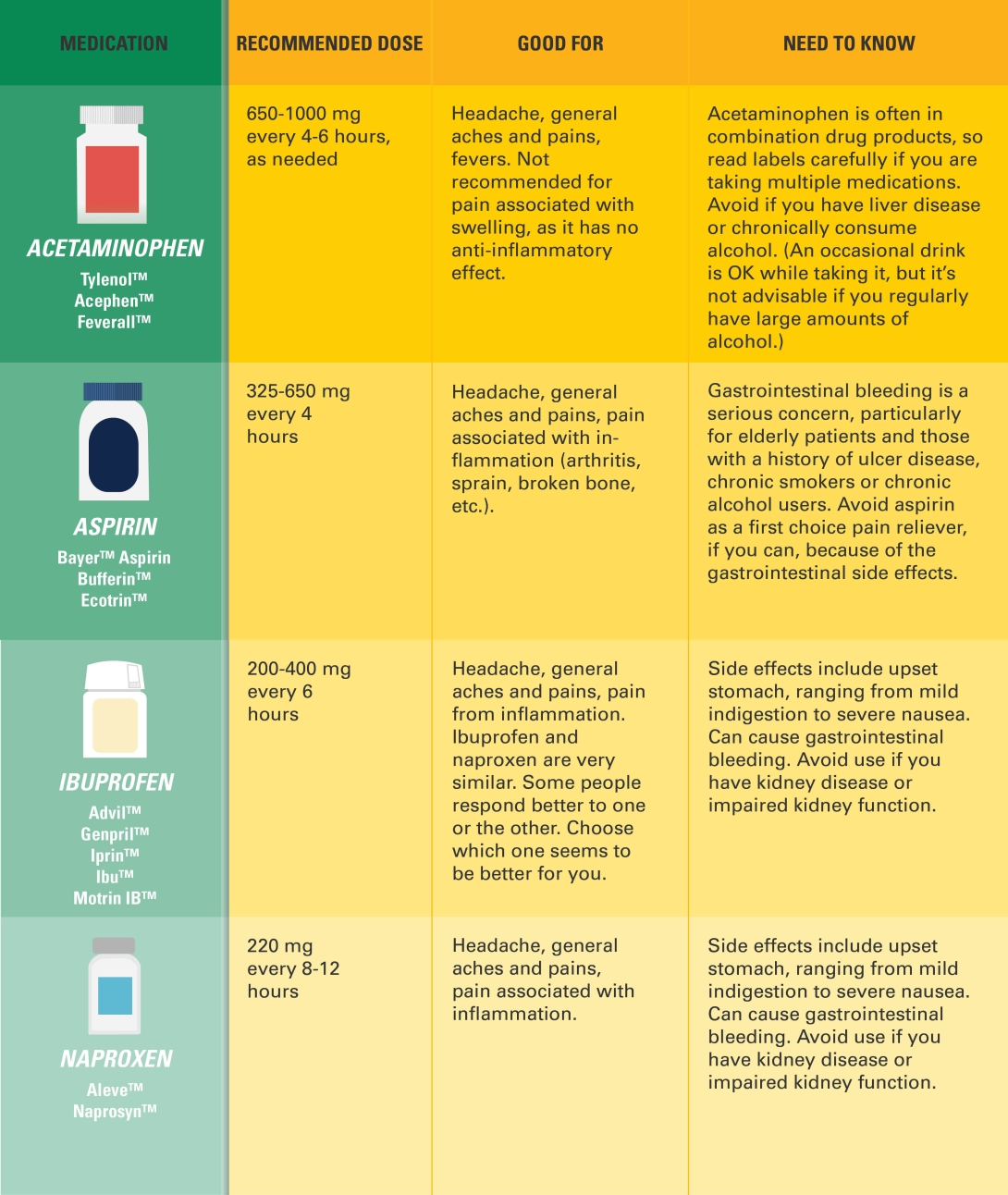Have a hangover or a sprained ankle? Use these tips from a drug information expert to safely choose the correct pain medication for your symptoms.
1:00 PM
Author |

Acetaminophen, ibuprofen, aspirin — or another option. It can be difficult to know which type of pain medication will best help what ails you.
SEE ALSO: Opioids: When the Harms Outweigh the Benefits
Margo Farber, Pharm.D., director of drug information services at the University of Michigan Health System, explains the basics to picking the proper option. First, there are two general categories when it comes to over-the-counter pain medications for adults: acetaminophen and nonsteroidal anti-inflammatory drugs (NSAIDs).
"Both types of pain medications are usually safe and effective when taken at the recommended dosage level for short time periods," Farber says. "However, there are some differences between the two, in terms of what type(s) of pain they treat."
Farber explains the main differences between the most common over-the-counter pain medications, including which pain to treat with what in the table below.

Farber adds it's important to read the active ingredient label on the package to know the exact strength of the pain medication, which ingredients are included (especially for combination products) and to see the exact symptoms the ingredient should be relieving. In addition, she recommends not relying on the brand names, as they may change, and sometimes, the active ingredients can switch even if the brand name remains the same.
Remember: Consult your pharmacist before using any over-the-counter painkillers when taking other medications. A pharmacist can help you determine if there are potential drug interactions, or if you're in the clear.

Explore a variety of health care news & stories by visiting the Health Lab home page for more articles.

Department of Communication at Michigan Medicine
Want top health & research news weekly? Sign up for Health Lab’s newsletters today!





